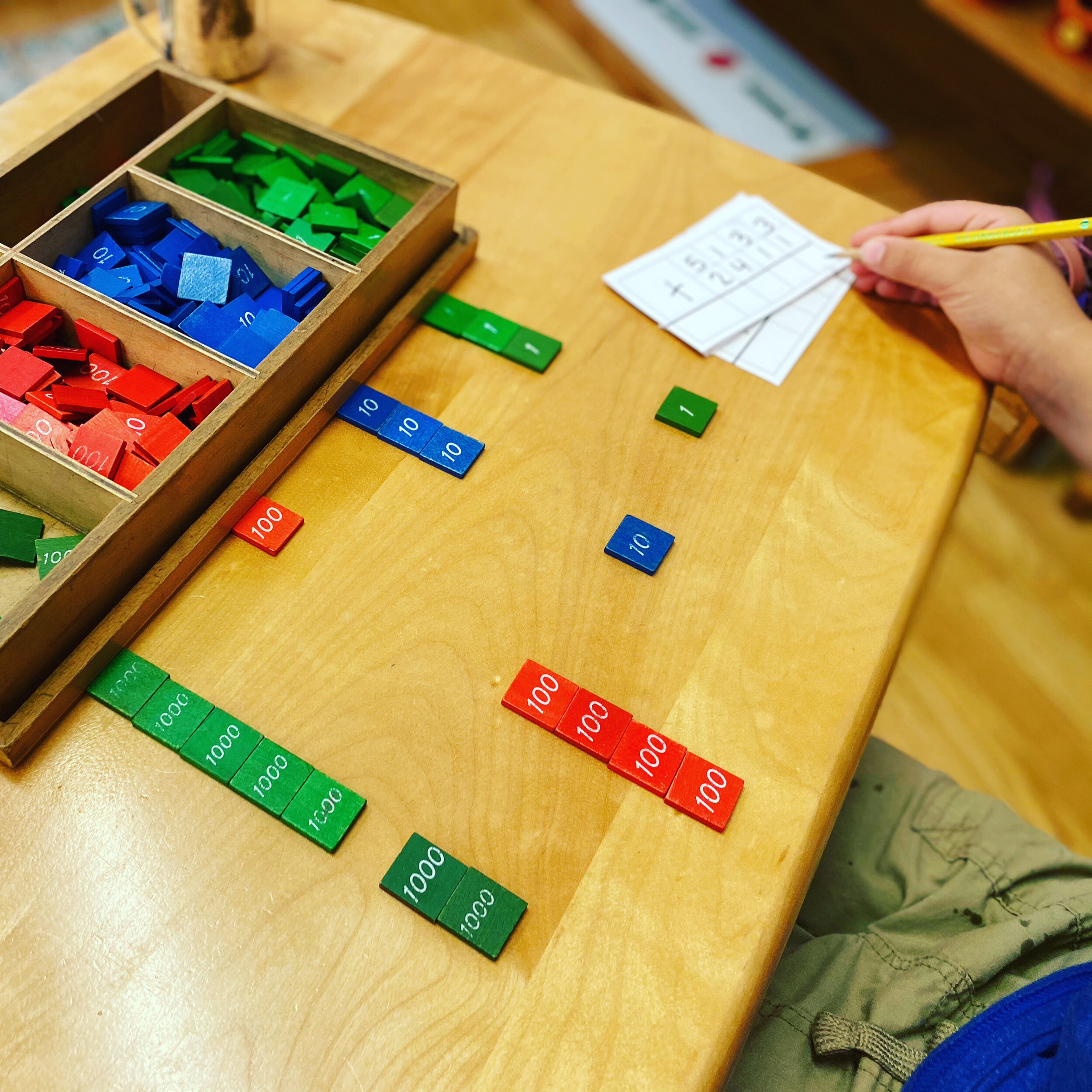Math
"This system in which a child is constantly moving objects with his hands and actively exercising his senses, also takes into account a child's special aptitude for mathematics. When they leave the material, the children very easily reach the point where they wish to write out the operation. They can thus carryout an abstract mental operation and acquire a kind of natural and spontaneous inclination for mental calculations.” Maria Montessori
Math is logic, sequence, order, and the extrapolation of truth. In the Montessori philosophy it's stated that the child has a 'mathematical mind' and an internal drive to understand the environment around them. It can therefore be said that children have an inborn attraction for math. Their minds are full of energy that propels them to absorb, manipulate, classify, order, sequence, abstract, and repeat. These tendencies are those which help the child to acquire a greater depth to his mathematical knowledge.
It is the precision of the presentations and the exactness of the math materials that attract children to this area of the classroom. As well, children in the primary Montessori classroom are in the process (sensitive period) of fine tuning their perceptions. Children are sensitive to minute changes in order, sequence, and size.
The exercises in the math area offer the children the 'keys' that they will need to send them on the road to further exploration and maturation of the mathematical mind. The ways in which the materials are ordered allows the children to complete full intellectual cycles that help them to achieve the freedom to become independent. Math in the Pre-K/K classroom is made up of many layers. All early math exercises are worked at the sensorial level so as to ensure that the child relates the quantity to the symbol.














